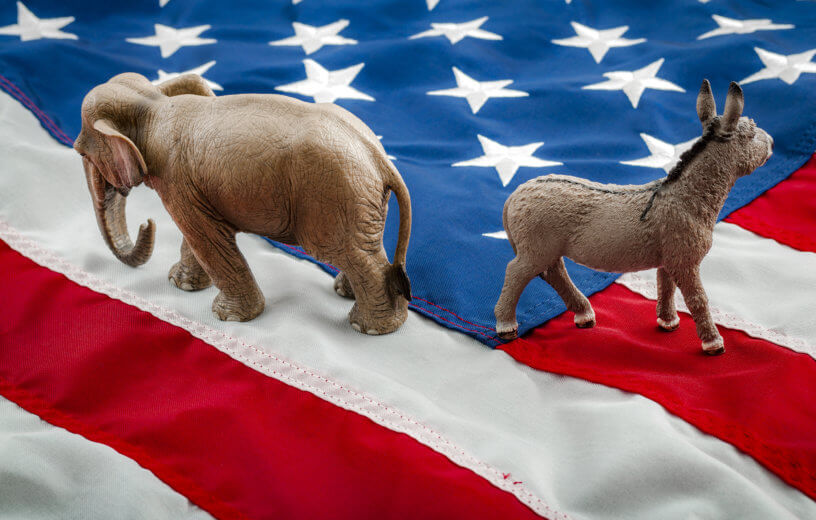LINCOLN, Neb. — Politics in America nowadays are seemingly all about “us versus them.” It’s quite common for both the right and left to accuse the other side of intolerance. Now, researchers from the University of Nebraska-Lincoln report that the relationship between one’s political affiliation and their political tolerance is much more nuanced.
Social scientists Christoper Garneau and Philip Schwadel analyzed 42 years’ worth of data originally collected by the General Social Survey to investigate how political identities influence political tolerance, defined as the willingness to support and advocate for the civil rights of others.
This led to numerous findings. To start, Democrats are generally more politically tolerant than Republicans. However, a much more complex landscape emerged when researchers looked into political orientation subgroups within the parties and among independents.
Tolerance varies among certain groups within political parties
“Party matters to some extent, but it’s dwarfed by orientation,” says Schwadel, Happold Professor of sociology at the University of Nebraska–Lincoln, in a university release.
By examining political ideologies according to a liberal, moderate, and conservative spectrum, Garneau and Schwadel were able to uncover that conservative Democrats are actually the least politically tolerant subgroup. Conservative Democrats are usually more religious, older, working-class, and from the South or Midwest.
“Democrats who are ideologically conservative are very unique in their levels of intolerance toward marginalized groups in the United States,” adds Garneau, a Nebraska alumnus and assistant professor of sociology at the University of Oklahoma. “That seems counterintuitive and was surprising, but as the Republican party has become more aligned ideologically, the Democratic party has remained a mishmash of religions, racial and ethnic groups, and occupational statuses across the board. They’re just very diverse.”
“And some of what we tend to equate with conservatism is true of conservative Democrats. They are often socially conservative, very pro-traditional family and religious, yet fiscally liberal. They are supportive of government equalizing income and supporting labor unions, which the Democratic party has historically stood for,” Garneau continues.
Researchers also found that people who consider themselves liberal Democrats are the most politically tolerant group. Moderate Democrats, on the other hand, were more similar in tolerance measures to moderate Republicans.
“Moderate Democrats pale in comparison to liberal Democrats, and we tend to equate the Democratic Party with liberals,” Schwadel explains. “But it’s a minority of the party who identify as liberal, and those that don’t are the ones who are relatively politically intolerant.”
Independents continue to stay above the partisan divide
Independents, of course, are a major political factor as well. A large and growing political population, independents were generally deemed more tolerant overall than either liberals or conservatives. Study authors posit political polarization may be playing a role in partisans’ intolerance.
“Especially over the last decade, we’ve seen a lot of at least anecdotal evidence of considerable intolerance among both Republicans and Democrats toward the other party, and that kind of intolerance can bleed into other aspects of who you view as acceptable populations,” Schwadel comments. “Pew (Research Center) has done a lot of really good work on how Democrats and Republicans don’t trust each other or don’t think the other groups are valid Americans. With that frame of mind, it becomes easier to be intolerant in other ways.”
The research team is continuing to gather more information from the data in order to explore why conservative Democrats are so intolerant. In conclusion, both Garneau and Schwadel believe it is especially important for social scientists to continue researching the relationship between political orientation and political tolerance. Improving political tolerance is key to a healthy, functioning democracy.
“Political tolerance, in and of itself, is the willingness to say, ‘Hey, everybody gets to do things like vote and work in a civil society, even if I don’t like that particular group or person,’” Garneau notes. “That’s critical in a democratic society. For it to operate effectively, everyone gets to be part of the whole.”
“Just about every theorist of democracy is very clear,” Schwadel concludes. “More participation is better, and equal access to participation is better. Democracy works best when everyone has the right and the ability to participate.”
The study is published in Socius Sociological Research for a Dynamic World.

